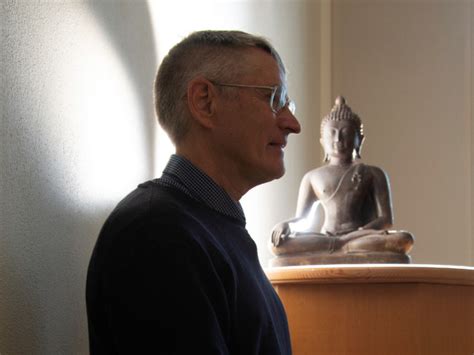Top 18 Quotes & Sayings by Gil Fronsdal
Explore popular quotes and sayings by Gil Fronsdal.
Last updated on November 20, 2024.
Our intentions - noticed or unnoticed, gross or subtle contribute either to our suffering or to our happiness. Intentions are sometimes called seeds. The garden you grow depends on the seeds you plant and water. Long after a deed is done, the trace or momentum of the intention behind it remains as a seed, conditioning our future happiness or unhappiness.
Generosity is not limited to the giving of material things. We can be generous with our kindness and receptivity. Generosity can mean the simple giving of a smile or extending ourselves to really listen to a friend. Paradoxically, even being willing to receive the generosity of others can be a form of generosity.
Repetition and ritual and their good results come in many forms: changing the oil filter, wiping noses, going to meetings, picking up around the house, washing dishes, checking the dipstick . . . such a round of chores is not a set of difficulties we hope to escape from so that we may do our practice, which will put us on the path. It is our path.

















